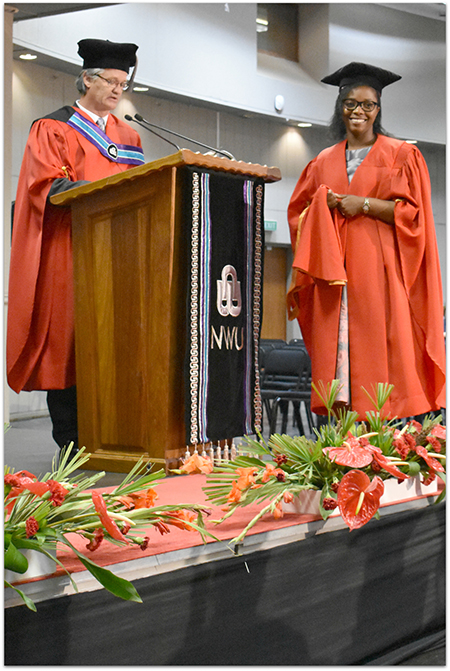This is according to the research findings of Hannah Mayamiko Dunga, who recently obtained her doctoral degree during the Autumn Graduation Ceremony of the North-West University’s (NWU’s) campus in Vanderbijlpark.
According to Hannah the focus of her study, “A gender analysis of household food insecurity in the South Eastern region of Malawi”, was on gender inequalities that emphasizes the idiosyncrasies of female-headed households and how these households deal with (or are associated with) food insecurity.
To determine the food security status of households, Hannah employed three different food security measures, namely: Household Food Insecurity Access Scale (HFSAS), Dietary Diversity Score (DDS) and Coping Strategy Index (CSI). She further employed two regressions – the first being an ordinary least squares (OLS) multiple regression model, using the coping strategies as a proxy for food insecurity at household level to determine the vulnerability of households towards food insecurity. The second was a multinomial logistic regression model to determine the underlying determinants and causes of food insecurity at household level.
The recommendations of the study were outlined as a guide to enable policy-makers to focus on ways of how to deal with the source of the problem of gender-based discrepancies in household food insecurity. The promotor of the study was Prof Wynand Grobler.
More about Dr Hannah Dunga
Hannah was born in Blantyre, Malawi on 19 October 1984. She attended high school at Our Lady of Wisdom where she obtained her O levels. She holds a certificate in health, social care and auxiliary nursing from Lodge Group Care, UK and a diploma in banking from UNISA. In 2012 she obtained a Bachelor of Finance Investment Analysis degree from Amity University in India. She obtained an honours in economics and risk management in 2014, and then a master’s in economics in 2015, both from the NWU.
Her master’s dissertation was on the relationship between household socio-economic characteristics and young female education participation and success in Malawi. In her career she has worked in different organisation in the UK, Malawi and South Africa. In Malawi she worked for the National Bank of Malawi and the Finance Bank of Malawi in different departments. At the NWU she was part of the teaching and research assistant programme. She has published two articles in accredited journals and has presented a paper at a conference.

Prof Wynand Grobler reading the appreciation of Hannah’s thesis.
